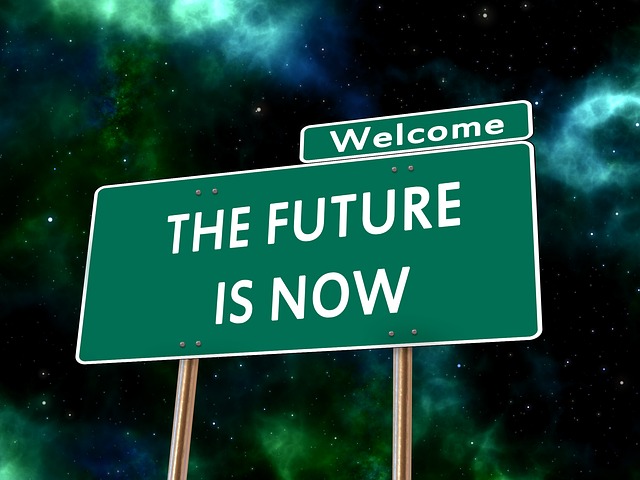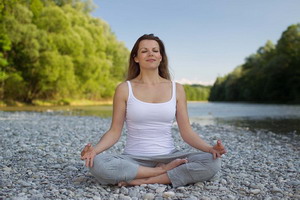 Without a doubt the single biggest source of ill health is stress. There are tons of techniques out there for combating stress such as meditation, exercise, special breathing methods, biofeedback, EMDR, drugs, and so on. But very little is actually said about how to not get stressed in the first place. The prevailing assumption is that stress is just a natural consequence of modern life. Curiously, our modern lives would seem to be stress-free from the perspective of ancient humans. We are not living with the daily fear of being eaten or killed by wild animals, and most of us have shelter from the elements, clothing to wear, and a way to get food and water every day. Even today these are not given assumptions in many parts of the world.
Without a doubt the single biggest source of ill health is stress. There are tons of techniques out there for combating stress such as meditation, exercise, special breathing methods, biofeedback, EMDR, drugs, and so on. But very little is actually said about how to not get stressed in the first place. The prevailing assumption is that stress is just a natural consequence of modern life. Curiously, our modern lives would seem to be stress-free from the perspective of ancient humans. We are not living with the daily fear of being eaten or killed by wild animals, and most of us have shelter from the elements, clothing to wear, and a way to get food and water every day. Even today these are not given assumptions in many parts of the world.
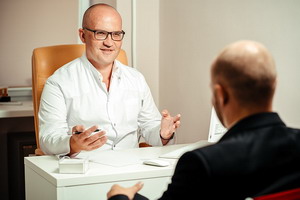 Yet the massive number of stress-caused illnesses within our modern society points to survival challenges not being the only sources of stress. If you step into any psychiatrist or social worker’s office and ask them what’s bugging their patients, the list will be a mile long. Trying to understand stress from this angle is very complex and generally unrewarding. The joke and yet truthful belief a few years back were that a course of psychiatric treatment was at least 20 years long. This is not very useful when you are dealing with a stress-related illness today. We need a basic paradigm shift before approaching this whole subject.
Yet the massive number of stress-caused illnesses within our modern society points to survival challenges not being the only sources of stress. If you step into any psychiatrist or social worker’s office and ask them what’s bugging their patients, the list will be a mile long. Trying to understand stress from this angle is very complex and generally unrewarding. The joke and yet truthful belief a few years back were that a course of psychiatric treatment was at least 20 years long. This is not very useful when you are dealing with a stress-related illness today. We need a basic paradigm shift before approaching this whole subject.
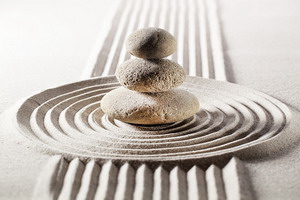 Last week as I was chatting with Ellen about the process of chronic stress. I bounced out several very old philosophical perspectives concerning our basic relationship to life. One simple statement was from a Zen perspective perhaps best phrased by Allan Watts back in the 60s — Be here now. Similar viewpoints were expressed by the old stoic Greek philosophers about keeping our attention focused on just what is real and in front of us right now. Each religious teaching I am aware of in the world has content expressing similar thoughts. Even the essence of the concept of sin in western Christian thought revolves around any focus of attention that pulls you away from the presence of God in the now moment. Being present with God right now is a very relaxed state; the opposite of stress.
Last week as I was chatting with Ellen about the process of chronic stress. I bounced out several very old philosophical perspectives concerning our basic relationship to life. One simple statement was from a Zen perspective perhaps best phrased by Allan Watts back in the 60s — Be here now. Similar viewpoints were expressed by the old stoic Greek philosophers about keeping our attention focused on just what is real and in front of us right now. Each religious teaching I am aware of in the world has content expressing similar thoughts. Even the essence of the concept of sin in western Christian thought revolves around any focus of attention that pulls you away from the presence of God in the now moment. Being present with God right now is a very relaxed state; the opposite of stress.
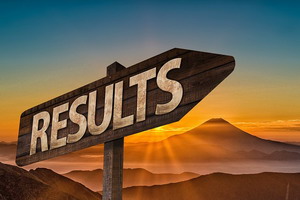 What are all these old philosophers and religious writings trying to tell us? How does any of this relate to our experience of stress in this modern world? As I was trying to find a way to make these ideas relatable to Ellen, a perspective popped into my mind regarding the outcome of stress. So much of what is stressful to us has to do with our concern for how things will turn out. We are obsessed with outcomes in this life. Our concern pushes us to try to gain control over outcomes. We want everything to turn out the way we think it “should.” This is what triggered the conversation in the first place. Ellen was stressing about how things were going to turn out for someone she knew. It wasn’t even concerning her own life. It was about somebody else! I was asking her why she felt that she knew what was the right outcome for this person. She could not know what this person was needing to learn at this moment in their life. It was clear this person was making choices that neither Ellen nor I would make and that these choices were likely to create chaos in their life. But my stance was that if chaos happens it is a vital part of growth and change. Just because it is generally associated with lots of suffering does not change how important it is. Humans rarely ever change from a state of comfort. As much as we hate it, getting out of suffering is the main reason people change.
What are all these old philosophers and religious writings trying to tell us? How does any of this relate to our experience of stress in this modern world? As I was trying to find a way to make these ideas relatable to Ellen, a perspective popped into my mind regarding the outcome of stress. So much of what is stressful to us has to do with our concern for how things will turn out. We are obsessed with outcomes in this life. Our concern pushes us to try to gain control over outcomes. We want everything to turn out the way we think it “should.” This is what triggered the conversation in the first place. Ellen was stressing about how things were going to turn out for someone she knew. It wasn’t even concerning her own life. It was about somebody else! I was asking her why she felt that she knew what was the right outcome for this person. She could not know what this person was needing to learn at this moment in their life. It was clear this person was making choices that neither Ellen nor I would make and that these choices were likely to create chaos in their life. But my stance was that if chaos happens it is a vital part of growth and change. Just because it is generally associated with lots of suffering does not change how important it is. Humans rarely ever change from a state of comfort. As much as we hate it, getting out of suffering is the main reason people change.
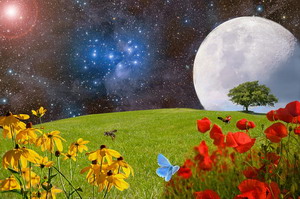 The idea that popped into my head at that point was that we would feel much happier in life if we stopped fretting about outcomes. If we let go of trying to anticipate every possibility and controlling every aspect of our lives, we might be able to relax and enjoy life a bit more. We are spending all our life energy looking at possible futures and none of our energy on actually living in the moment. This is almost a defining description of stress. There is no simple enjoyment here and now. Everything is work and worry. What we call time off is really just what distraction we engage in momentarily to avoid feeling stressed attention to things we have no control over anyway. Does any of this sound familiar to any of you?
The idea that popped into my head at that point was that we would feel much happier in life if we stopped fretting about outcomes. If we let go of trying to anticipate every possibility and controlling every aspect of our lives, we might be able to relax and enjoy life a bit more. We are spending all our life energy looking at possible futures and none of our energy on actually living in the moment. This is almost a defining description of stress. There is no simple enjoyment here and now. Everything is work and worry. What we call time off is really just what distraction we engage in momentarily to avoid feeling stressed attention to things we have no control over anyway. Does any of this sound familiar to any of you?
 Most likely this viewpoint was helped to the surface by the subject of our study group’s contemplation: God is with you always, and guidance is available when requested. For several weeks Ellen and I were looking at how much of the time we box ourselves into certain life stories that we don’t like simply because we don’t know what to do to change them. When we simply ask for guidance, we get completely different ways of looking at situations that also provide simple ways to change them. We were stuck because we wanted particular outcomes. We were not willing to see other outcomes as doable because we believed that only exactly what we wanted would meet our needs. Guidance shows us other ways to meet those needs without all the stress. Sometimes guidance shows us that what we believe are needs are really just very old stories of lack from childhood that simply can never be met because the problem we are trying to resolve is long gone.
Most likely this viewpoint was helped to the surface by the subject of our study group’s contemplation: God is with you always, and guidance is available when requested. For several weeks Ellen and I were looking at how much of the time we box ourselves into certain life stories that we don’t like simply because we don’t know what to do to change them. When we simply ask for guidance, we get completely different ways of looking at situations that also provide simple ways to change them. We were stuck because we wanted particular outcomes. We were not willing to see other outcomes as doable because we believed that only exactly what we wanted would meet our needs. Guidance shows us other ways to meet those needs without all the stress. Sometimes guidance shows us that what we believe are needs are really just very old stories of lack from childhood that simply can never be met because the problem we are trying to resolve is long gone.
 How much of our stress is trying to control things we cannot control? A big chunk is worrying about an unknown future and another chunk is stressing about trying to meet unmet needs from our childhood. We are stuck in either the future or the past. When we live in the present, 90% of our stress simply is not there. Our body could handle the remaining 10% just fine. We don’t need a stress-free life. In fact, we need some stress to be healthy. Our body goes to pot if it does not get regular doses of stress. That is why we go to the gym, have relationships, eat out, and listen to the news occasionally. Stress challenges us to adapt and creatively problem-solve. But the majority of our time is designed to be in the flow of life, not constantly battling life.
How much of our stress is trying to control things we cannot control? A big chunk is worrying about an unknown future and another chunk is stressing about trying to meet unmet needs from our childhood. We are stuck in either the future or the past. When we live in the present, 90% of our stress simply is not there. Our body could handle the remaining 10% just fine. We don’t need a stress-free life. In fact, we need some stress to be healthy. Our body goes to pot if it does not get regular doses of stress. That is why we go to the gym, have relationships, eat out, and listen to the news occasionally. Stress challenges us to adapt and creatively problem-solve. But the majority of our time is designed to be in the flow of life, not constantly battling life.
 Seeking flow is another way of describing ease or pleasure. This state of flow is the biological state in the body that promotes healing, good digestion, and mental recovery. Folks often confuse excitement with pleasure. In fact, they are completely opposite physiological states. While excitement feels very good, your body is highly ramped up. The same adrenaline-based biochemistry as fight or flight is happening with excitement. It is fine in small doses but is very destructive in the long run. What I am saying that no one wants to hear is that excitement is a state of stress on the body. Winning that race or getting that award may feel good in the moment, and that is fine, but running your life to try to feel that excitement all the time will kill you. That is what meth addicts are doing. Always having to be the winner is not a healthy option. This is what is happening when we feel or believe that things should be our way. We are competing with everyone else who also believes things should be their way. Years ago this source of stress was given the colorful name the rat race.
Seeking flow is another way of describing ease or pleasure. This state of flow is the biological state in the body that promotes healing, good digestion, and mental recovery. Folks often confuse excitement with pleasure. In fact, they are completely opposite physiological states. While excitement feels very good, your body is highly ramped up. The same adrenaline-based biochemistry as fight or flight is happening with excitement. It is fine in small doses but is very destructive in the long run. What I am saying that no one wants to hear is that excitement is a state of stress on the body. Winning that race or getting that award may feel good in the moment, and that is fine, but running your life to try to feel that excitement all the time will kill you. That is what meth addicts are doing. Always having to be the winner is not a healthy option. This is what is happening when we feel or believe that things should be our way. We are competing with everyone else who also believes things should be their way. Years ago this source of stress was given the colorful name the rat race.
 Seek flow. Give up the obsession with outcomes. Participate in the present moment and trust your guidance in this moment right now. Embrace the concept that life is supposed to be uncomfortable at times. We are not supposed to get our way all the time, just some of the time. We have to share life with others who also need the occasional win. I don’t mean we should abandon our creative abilities to manifest the life we desire. Embracing our capacity to create in this world is part of the reason for our existence. We are here to learn and grow forever. Creative expression is part of the joy of being alive. The challenge is learning how to create and express while also being in the flow of life. Do my engagements and choices expand my life and the lives of those I know, or am I locking things down and limiting choice out of fear? Am I choosing flow and ease or am I choosing restriction and limitation simply to avoid discomfort? Remember, discomfort exists to stimulate growth, and we grow by embracing the discomfort to find creative skills to overcome it, not by running away from it.
Seek flow. Give up the obsession with outcomes. Participate in the present moment and trust your guidance in this moment right now. Embrace the concept that life is supposed to be uncomfortable at times. We are not supposed to get our way all the time, just some of the time. We have to share life with others who also need the occasional win. I don’t mean we should abandon our creative abilities to manifest the life we desire. Embracing our capacity to create in this world is part of the reason for our existence. We are here to learn and grow forever. Creative expression is part of the joy of being alive. The challenge is learning how to create and express while also being in the flow of life. Do my engagements and choices expand my life and the lives of those I know, or am I locking things down and limiting choice out of fear? Am I choosing flow and ease or am I choosing restriction and limitation simply to avoid discomfort? Remember, discomfort exists to stimulate growth, and we grow by embracing the discomfort to find creative skills to overcome it, not by running away from it.
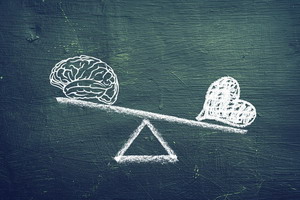 The idea is to generate health by dealing with stress differently and by tackling the mindset that creates stress in the first place. We do that by seeking ease of flow and letting go of over-concern with outcomes.
The idea is to generate health by dealing with stress differently and by tackling the mindset that creates stress in the first place. We do that by seeking ease of flow and letting go of over-concern with outcomes.
Take care,
David
